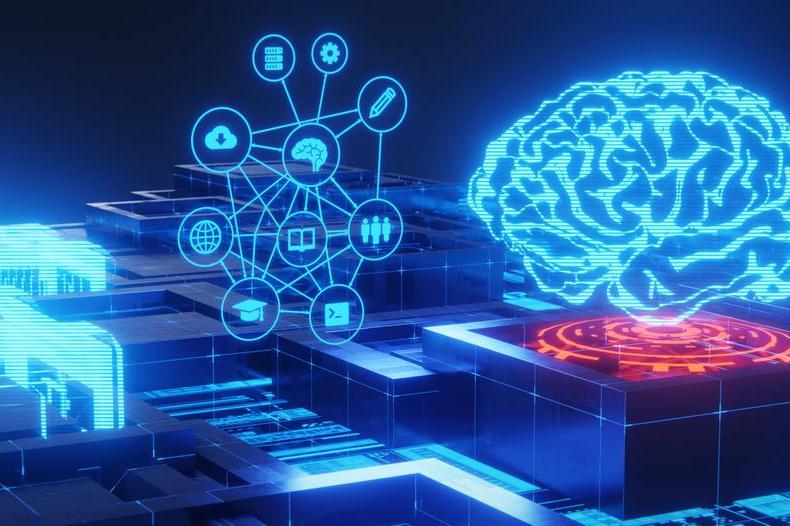What does artificial intelligence mean for the future of intellectual property?
Artificial intelligence has the potential to have a seismic impact on intellectual property, and understanding this change is vital.

Perhaps we should ask ChatGPT what impact AI will have on IP?
What does AI mean for IP? One could argue that its impact will be significant, bearing in mind that recently the UK Government sought evidence and views on a range of options on how Artificial Intelligence (AI) should be dealt with in the copyright system.
But first, let’s go back to basics and separately define AI and copyright.

Put simply, AI is the ability for a machine to think and learn. It is the simulation of human intelligence processes by machines to perform a task that would have previously required human intelligence.
This includes tasks such as processing language, writing, creating content, problem-solving, and learning.
Copyright is a type of intellectual property right which protects original works of authorship as soon as that work is recorded in a tangible form of expression.
So can there be copyright in something created by AI?
For something to enjoy copyright, it must be sufficiently original to qualify for copyright protection.
This requirement has been tested through the Courts countless times, generally setting a low threshold for originality, requiring the application of a limited degree of "skill, judgment and labour" in producing a work, which cannot itself have been copied from another work.
Therefore in short, yes, copyright can subsist in AI generated material, as long as the work being produced has not been copied.
But that then leads to the next question: does AI infringe another third party’s copyright?
Is there copying?
Let’s explore how ChatGPT works: when you ask ChatGPT a question, it pulls together information from a large dataset of text data which comes from several sources, such as books, news articles, websites, Wikipedia and journals to curate a response.
ChatGPT is using information which has already been created. It is copying from information already
available.
Does the ChatGPT output therefore infringe the copyright of the original content?
This is a question which will soon be making its way to the UK and US Courts. Stock-image supplier Getty Images has very recently filed proceedings against Stability AI in both the UK and US Courts.
Stable AI is the provider of an AI image-generator system which takes text prompts and generates artwork from images on the Internet.
It is alleged in the US lawsuit that: “Stability AI has copied more than 12 million photographs from Getty Images’ collection, along with the associated captions and metadata, without permission from or compensation to Getty Images”.
The UK press release commented: “Stability AI unlawfully copied and processed millions of images protected by copyright and the associated metadata owned or represented by Getty Images absent a license [sic] to benefit Stability AI’s commercial interests and to the detriment of the content creators”.

Getty Images is paving the way for some clarity in this field, and it remains to be seen how these suits will be decided.
Following the aforementioned UK Government’s public consultation, a report was published by Sir Patrick Vallance on the ‘Pro-innovation Regulation of Technologies Review’ stating:
"If the government’s aim is to promote an innovative AI industry in the UK, it should enable mining of available data, text, and images (the input) and utilise existing protections of copyright and IP law on the output of AI…
“The opportunity here is to focus on clarifying a simple process concerning the input to AI models; IP rights and their enforcement would apply to the output of any product.
“We also recommend a code of practice and a requirement for altered images to be labelled as generated or assisted by AI."
The Government responding to this to confirm that the UK IPO will produce a code of practice by summer 2023, and that "an AI firm which commits to the code of practice can expect to be able to have a reasonable licence offered by a rights holder in return".
The UK Chancellor also referred to Sir Patrick's report in his Budget speech stating the Government would "work at pace with the Intellectual Property Office to get clarity on IP rules so that generative AI companies can access the material they need".
So if AI can create content with copyright protection, who owns the copyright in the content?
Under UK copyright law, section 9(3) of the Copyright Designs and Patents Act 1988 (CDPA) states that the author of a computer-generated work is "the person by whom the arrangements necessary for the creation of the work are undertaken".
The CDPA then goes on to define "computer-generated" as being work which is generated by computer in

circumstances such that there is no human author of the work.
Therefore, it is the user who prompted the output that owns any copyright in any end product.
Whilst the UK Government sought views on this point, no changes to the law were made, stating more time was needed to evaluate the situation.
Other jurisdictions such as the USA, Spain and Germany have been categoric in their positions stating copyright can only exist and be owned by a human being in order to satisfy the originality requirements.
Keeping pace with AI
What is clear, is that the position is not clear.
This is an area of technology that is developing at a rate that no one could have predicted. The question is now whether the law can keep up.
Early signs would indicate no, given Getty is taking matters into its own hands with a $1.8 trillion lawsuit.
Given the unclear state of the relationship between AI and IP, professional advice will be invaluable for anyone dipping a toe into working with AI.
The first step is to contact an IP professional, such as a Chartered Trade Mark Attorney, in order to gain the best input and advice.


